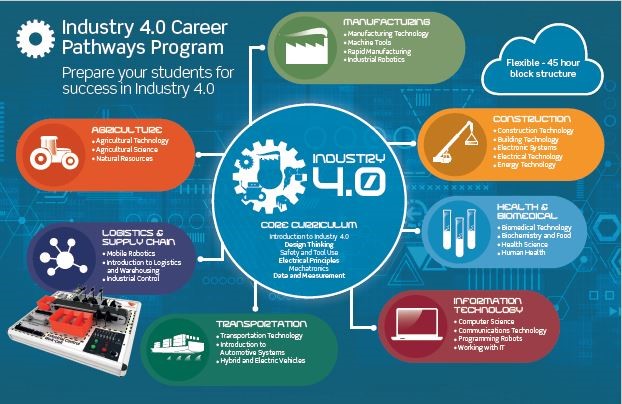
Chemical engineering refers to the design and operation a chemical plant. Chemical engineering also involves the commercialization of raw materials to create useful products. These processes are developed and refined by chemical engineers to be more efficient and economically viable. In this article we will discuss the different aspects and applications of chemical engineering. We will also learn about some of the most interesting careers in the field.
Unit operations
Unit operations refers to processes that move a quantity of something from one form or another. For example, unit operations can be used to crystallize sugar from a solution. Distillation is another way to separate liquid components into a phase and vapor. The vapor phase is made up of more volatile components, while the liquid phase contains less volatile ones. Distillation is an important process in petroleum refining, because it separates crude oil into multiple products.
The processes involved in unit operations include transportation, mixing, separation, and reaction. These operations involve many variables such as temperature, pressure, and density.

Systems for chemical processing
Chemical process technology is a crucial part of chemical engineering. Chemical process industries are focusing more on advanced manufacturing. This is due to increased process intensification and the emergence of smart manufacturing techniques. These technologies are also contributing to the worldwide demand for sustainable products and processes. Chemical process engineering departments now offer AM, process intensification and nano-scale patterning courses to help students appreciate the importance of AM.
Complex systems that involve interactions between components, subsystems and processes are called process systems. These systems are often beyond the boundaries of traditional disciplines and require multidisciplinary approach. The study of process systems is a branch of chemical engineering that considers these complex systems and their interaction to design, operate, and optimize processes. Chemical engineering professors have been working to create advanced numerical simulation tools and computer aided tools to help engineers and students make better and more efficient design decisions.
Chemical process optimization
Chemical engineering has many applications. These include improving product concentration and separation, as well as maximizing product yield. It can also be used for optimizing biochemical processes. The optimization process involves formulating an objective and a constraints function. The optimization of these variables is crucial to the design of a process plant.
Chemical process optimization's main goal is to improve a plant's performance. This approach is known as real time optimization (RTO), which is gaining significant popularity in both academia and industry. It has been shown that the implementation of RTO systems can result in significant returns on investment. Even small improvements can have a large impact in a high-capacity chemical plant. This method does not take into account the reality that it is based on a simplified model. There is also significant uncertainty due to unmeasured perturbations.

Biochemical engineering
Biochemical engineering refers to the science of bioprocessing engineering. This branch of engineering has both roots in chemical and biological engineering. This field works to develop new chemical processes which will benefit society. It is used extensively in the pharmaceutical and other industries. This branch is fast-growing and continuously changing.
Biochemical engineering requires many years of practical experience and knowledge. Biochemical engineers develop new methods for fighting disease and protecting the environment. They can collaborate with scientists, chemists and manufacturing personnel as well as quality assurance professionals. They can work in a lab or in an administrative office. They can also specialize on a particular area of pharmaceuticals or biotechnology.
FAQ
What is an industrial engineer doing?
Industrial engineers deal with the interplay of things.
Their job ensures that machinery, plants, and factories run efficiently and safely.
They design controls and equipment to make it easier to perform tasks.
They also ensure that machines meet safety standards and comply with environmental regulations.
Which type of engineer gets the best salary?
Software engineers would be the best answer because they code for computers. They also have a lot of freedom regarding what kind of project they want to work on. Software engineers are able to work in any industry. However, they often choose to work for technology companies such as Google and Microsoft.
What kind of engineer is Elon Musk?
He is an inventor who loves to think out of the box.
He is also a risktaker.
He's not afraid to experiment with new ideas and is open to taking risks.
Elon Musk, a great example of someone who thinks and acts differently to others, is a great example. He doesn't just follow the crowd. Instead, he tries out his own ideas and then decides whether they worked or not. He will change them if they don't work until he comes up with something that does. He learns to solve problems and develop innovative ideas this way.
What does a typical day in the life of an engineer look like?
Engineers spend a lot time working on different projects. These projects may involve developing new products or improving existing ones.
They may work on research projects that aim to improve the world around us.
Oder they could be involved with the creation of new technologies like computers, smartphones, planes and rockets.
Engineers need to have imagination and creativity to succeed in these tasks. Engineers need to be able to think out of the box and create innovative solutions to problems.
They will be required to sit down with their ideas and develop them. They will also need equipment such as laser cutters CNC machines, 3D printing, laser cutters, CNC, computer-aided engineering software, etc. to test their ideas.
Engineers must communicate effectively with others to express their ideas. They must write reports and presentations to share their findings with colleagues and clients.
Finally, they must manage their time effectively to achieve maximum results in the shortest amount of time.
No matter which type of engineering you choose to do, you will need to be creative, innovative, analytical, and well-organized.
Statistics
- 8% Civil engineers solve infrastructure problems. (snhu.edu)
- 14% of Industrial engineers design systems that combine workers, machines, and more to create a product or service to eliminate wastefulness in production processes, according to BLS efficiently. (snhu.edu)
External Links
How To
Which type of engineering do you want to study?
For anyone who is interested in technology, engineering is a great career choice. There are many types, each with their own skills and responsibilities. Some are skilled in mechanical design and others specialize in electrical systems.
Engineers may work directly with clients to design buildings and bridges. Others work behind-the scenes developing software or analyzing data.
Whatever your choice of engineering career, you'll be able to use scientific principles and solve real-world challenges.
Not only do students acquire technical skills but they also learn valuable communication and business skills. Engineers often collaborate and work with other professionals such accountants, managers lawyers, marketers, and architects to develop new products and services.
As a student, you'll explore topics including mathematics, science, chemistry, physics, and biology. Also, you'll learn how to communicate effectively either orally or in writing.
Engineers have many advancement opportunities, regardless of whether they work for a large firm or a small company. Many graduates are hired right away upon graduation. Many options are available for students who wish to further their education.
You can earn a bachelor's in engineering. This will provide you with a strong foundation for your future career. Or you might pursue a master's degree, providing additional training in specialized areas.
A doctorate program allows you to delve deeper into a particular field. A Ph.D. usually comes after four years of graduate studies.